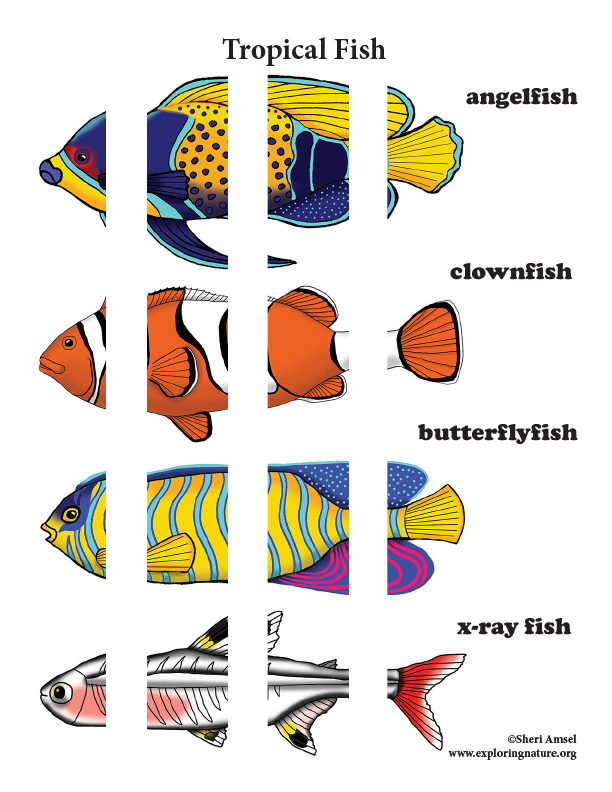

Using tropical fish, students will match the head, front fin, back fin and tail with the right fish. This helps students recognize patterns and match edges to make complete pictures. It is meant to improve motor skills and pattern recognition, while enjoying the sense of puzzle completion and learning about animals.
Applying teaching pedagogy, this simple activity addresses pattern completion, reasoning by analogy, serial reasoning and spatial visualization, measuring a student’s nonverbal abilities including critical thinking and problem solving using nonverbal reasoning skills in preschool to kindergarten aged children.
Materials:
• printed page with animal pieces and page with animals named for later discussion
• scissors
• access to school laminator
Directions:
1) Copy, laminate and cut out the pieces for 4 tropical fish.
2) Mix them all up in a pile. Have single, paired or small groups of students build and name the 4 animals.
3) Once they are done, talk about the 4 animals, their startling colors and how these help them in their habitat.
When you research information you must cite the reference. Citing for websites is different from citing from books, magazines and periodicals. The style of citing shown here is from the MLA Style Citations (Modern Language Association).
When citing a WEBSITE the general format is as follows.
Author Last Name, First Name(s). "Title: Subtitle of Part of Web Page, if appropriate." Title: Subtitle: Section of Page if appropriate. Sponsoring/Publishing Agency, If Given. Additional significant descriptive information. Date of Electronic Publication or other Date, such as Last Updated. Day Month Year of access < URL >.
Amsel, Sheri. "Matching Body Parts – Tropical Fish" Exploring Nature Educational Resource ©2005-2024. December 14, 2024
< http://www.exploringnature.org/db/view/Matching-Body-Parts-Tropical-Fish >
